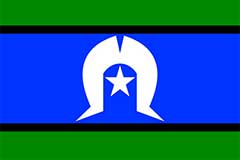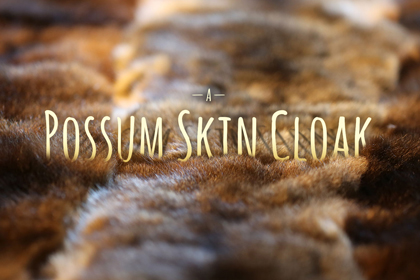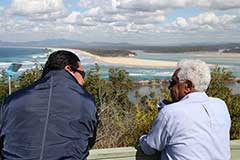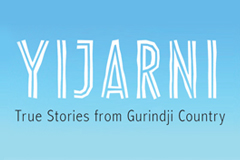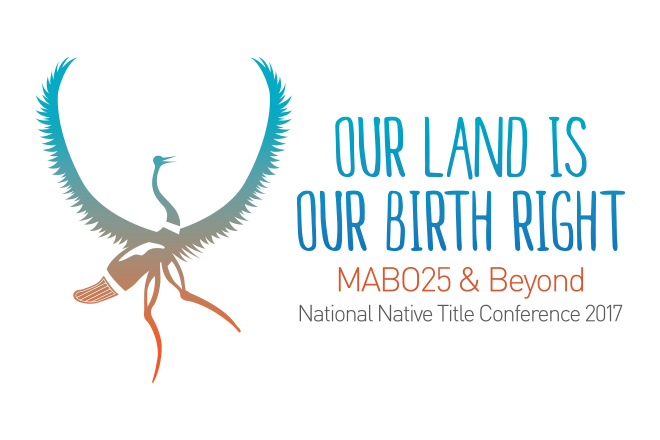Principle 1:
Recognition of the diversity and uniqueness of peoples, as well as of individuals, is essential.
Research in Indigenous studies must recognise the diversity of Indigenous peoples, including their different languages, cultures, histories and perspectives.
It is also important to recognise the diversity of individuals and groups within communities.
Applying the principle
Recognise the diversity of individual Indigenous groups and communities and the implications in planning, carrying out and reporting their research.
Recognise that Indigenous individuals or communities may have more pressing priorities, that may impinge on the research time frames.
When extrapolating from research, do not generalise from understandings of one Indigenous community to others or to all Indigenous peoples.
Do not apply stereotypes to communities and individuals.
Identify diversity within a community; for example, on the basis of gender, age, religion, family grouping and community interest.
Do not presume that the view of one group represents the collective view of the community.
Differentiate between individual, group and / or collective rights, responsibilities and ownership.
Undertake research only if it does not conflict with individuals’ rights, wishes or freedom.
Respect individuals’ rights to participate in research and in the disposal of research material.
Principle 2:
The rights of Indigenous peoples to self-determination must be recognised.
Research projects must be conducted in accordance with the United Nations Declarationon the Rights of Indigenous Peoples, including principles of Indigenous peoples’ rights to self-determination and to full participation (appropriate to their skills and experience) indevelopments that impact on their lives.
Applying the principle
Understand the meaning of self-determination in relation to Indigenous peoples and theirrights to maintain, control, protect and develop their cultural heritage, including theirtraditional knowledge, traditional cultural expressions and intellectual property.
Article 3 of the Declaration on the Rights of Indigenous Peoples states, ‘Indigenous peopleshave the right to self-determination. By virtue of that right they freely determine their political status and freely pursue their economic, social and cultural development’ (UN 2007).
Principle 3:
The rights of Indigenous peoples to their intangible heritage must be recognised.
Research projects should be conducted in accordance with the principle of Indigenous peoples’ rights to maintain, control, protect and develop their intangible heritage, including their cultural heritage, traditional knowledge, traditional cultural expressions and intellectual property.
Applying the principle
Understand intangible heritage in terms of Indigenous peoples’ definitions and perspectives.
Article 31 of the Declaration on the Rights of Indigenous Peoples states:
Indigenous peoples have the right to maintain, control, protect and develop their cultural heritage, traditional knowledge and traditional cultural expressions, as well as the manifestations of their sciences, technologies and cultures, including human and genetic resources, seeds, medicines, knowledge of the properties of fauna and flora, oral traditions, literatures, designs, sports and traditional games and visual and performing arts (UN 2007).
Understand the relevant laws and policies for the protection and maintenance of Indigenous intangible heritage, and international standards such as The Protection of Traditional Cultural Expressions/Expressions of Folklore: Revised objectives and principles (WIPO 2006a) and The Protection of Traditional Knowledge: Revised objectives and principles (WIPO 2006b), as well as the UNESCO (2003) Convention for the Safeguarding of the Intangible Cultural Heritage.
Principle 4:
Rights in the traditional knowledge and traditional cultural expressions of Indigenous peoples must be respected, protected and maintained.
Indigenous traditional knowledge and traditional cultural expressions are part of the heritage that exists in the cultural practices, resources and knowledge systems of Indigenous peoples, and that are passed on by them in expressing their cultural identity.
To respect, protect and maintain these rights, researchers must have a good understanding of the nature of Indigenous traditional knowledge systems, traditional cultural expressions and intellectual property.
Applying the principle
Rights in Indigenous traditional knowledge and cultural expressions are imperfectly reflected in Australian law, but must be respected. Ensure that all participants in research projects are aware of the inclusive nature of Indigenous traditional knowledge and cultural expressions as well as intellectual property.
It is a fundamental principle of research to acknowledge the sources of information and those who have contributed to the research. If Indigenous knowledge contributes to intellectual property, recognise the contribution, where appropriate, by transferring or sharing intellectual property and any benefits that result from the research.
Ensure familiarity with laws, administrative arrangements and other developments relevant to Indigenous traditional knowledge and cultural expressions as well as intellectual property rights. Include attention to actual and/or potential implications of digitisation on research processes and outputs.
Discuss co-ownership of intellectual property, including co-authorship of published and recorded works and performances, shared copyright, future management of the resources collected, and proper attribution and notices.
Give Indigenous contributors the opportunity to share in any intellectual property rights that vest in the researcher: it is the researcher’s responsibility to negotiate with any institution (for example, a university) that has contractually transferred their intellectual property rights.
Agree in writing on the sharing of intellectual property rights and moral rights between the researcher and individual contributors, and a community representative organisation, if applicable.
In the design of a research project, recognise and acknowledge continuing Indigenous ownership of the traditional knowledge, traditional cultural expressions and intellectual property rights in the materials on which the research is based, and protect the privacy, integrity and wellbeing of participants.
Include all possible measures in research projects to ensure protection of Indigenous peoples’ communal rights in cultural expressions, designs, and knowledge and performances, as these (or aspects of these) may be produced or included in such projects.
In any publication, acknowledge information obtained from Indigenous peoples.
Indigenous traditional knowledge and cultural expressions are not static and extend to things that may be created based on that heritage. Be aware of copyright laws regarding moral rights and attribution and the various forms of protection for different research products, including performances and other elements of Indigenous cultural expressions. Where necessary seek appropriate expert advice on intellectual property issues.
Be aware of current laws and standards, both internationally and in Australia, that relate to specific areas of research (for example, biology, genetics, ethnobotany).
Base research projects on an understanding, in equal terms, of Indigenous peoples’ perspectives and definitions of Indigenous traditional knowledge, cultural expressions and intellectual property, and on current non-Indigenous approaches to understanding them.
Principle 5:
Indigenous knowledge, practices and innovations must be respected, protected and maintained.
Acknowledging and respecting Indigenous knowledge, practices and innovations is not only a matter of courtesy but also recognition that such knowledge can make a significant contribution to the research process.
Once Indigenous knowledge is recorded, it becomes ‘property’ as defined under Western laws and concepts. It is therefore essential that the rights and interests of Indigenous people, whose knowledge it is, are recognised and protected throughout the project, and in regard to research products and outcomes after the life of the project.
Applying the principle
Recognise and protect Indigenous knowledge in accordance with Indigenous peoples’ perspectives, protocols and cultural values.
Take steps to ensure awareness of the scope of the subject matter of Indigenous knowledge in relevant standards such as The Protection of Traditional Knowledge: Revised objectives and principles.
Respect the rights of Indigenous peoples in relation to their knowledge, ideas, cultural expressions and materials, and their rights to maintain secrecy of Indigenous knowledge and practices.
Show or distribute restricted material only with express permission from those who provided or are responsible for it. Consider the impact of disclosure on the wider cultural source group, and whether wider consultation is required prior to disclosure. This is particularly relevant where first disclosures and publications are likely.
Aboriginal and Torres Strait Islander peoples have distinctive languages, customs, spirituality, perspectives and understandings that derive from their cultures and histories. Research that has Indigenous experience as its subject matter must reflect those perspectives and understandings.
Incorporate relevant Indigenous knowledge, learning and research processes into all stages of research, including project design and methodology.
